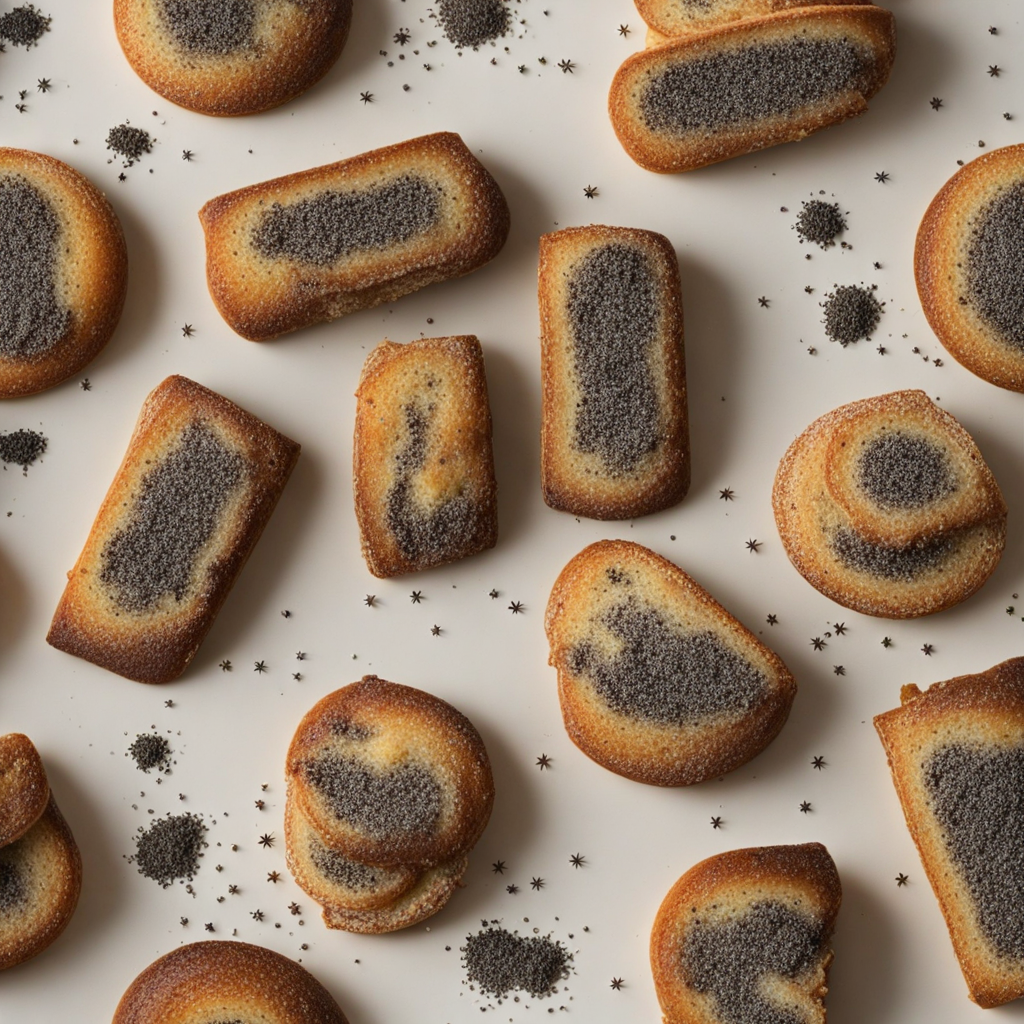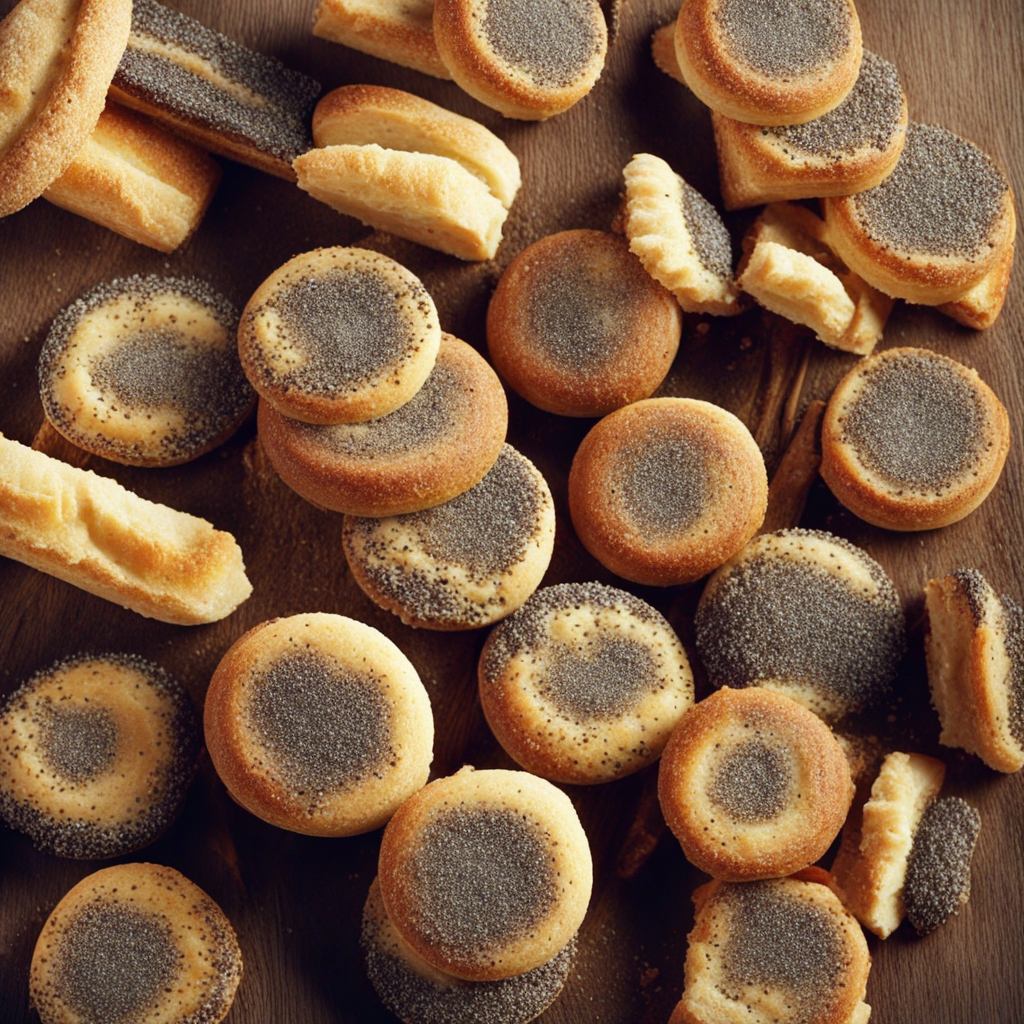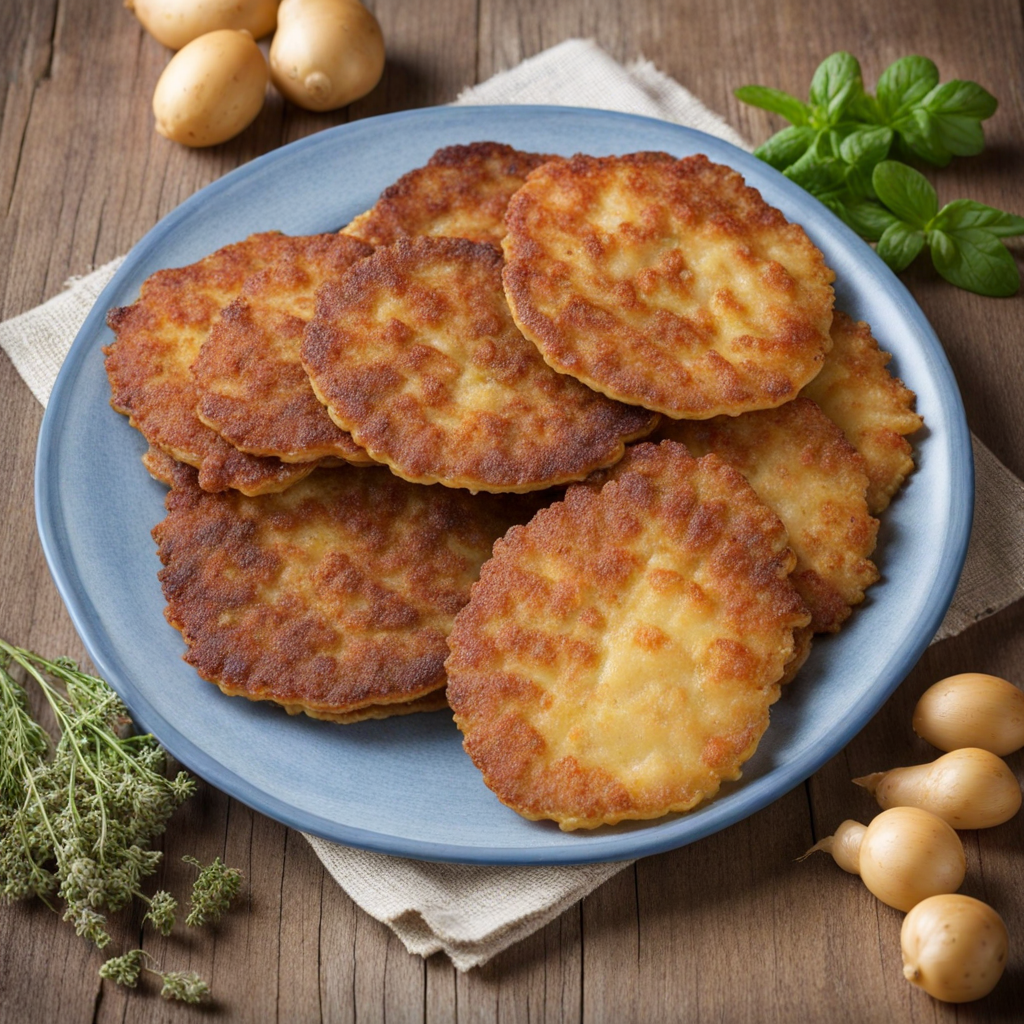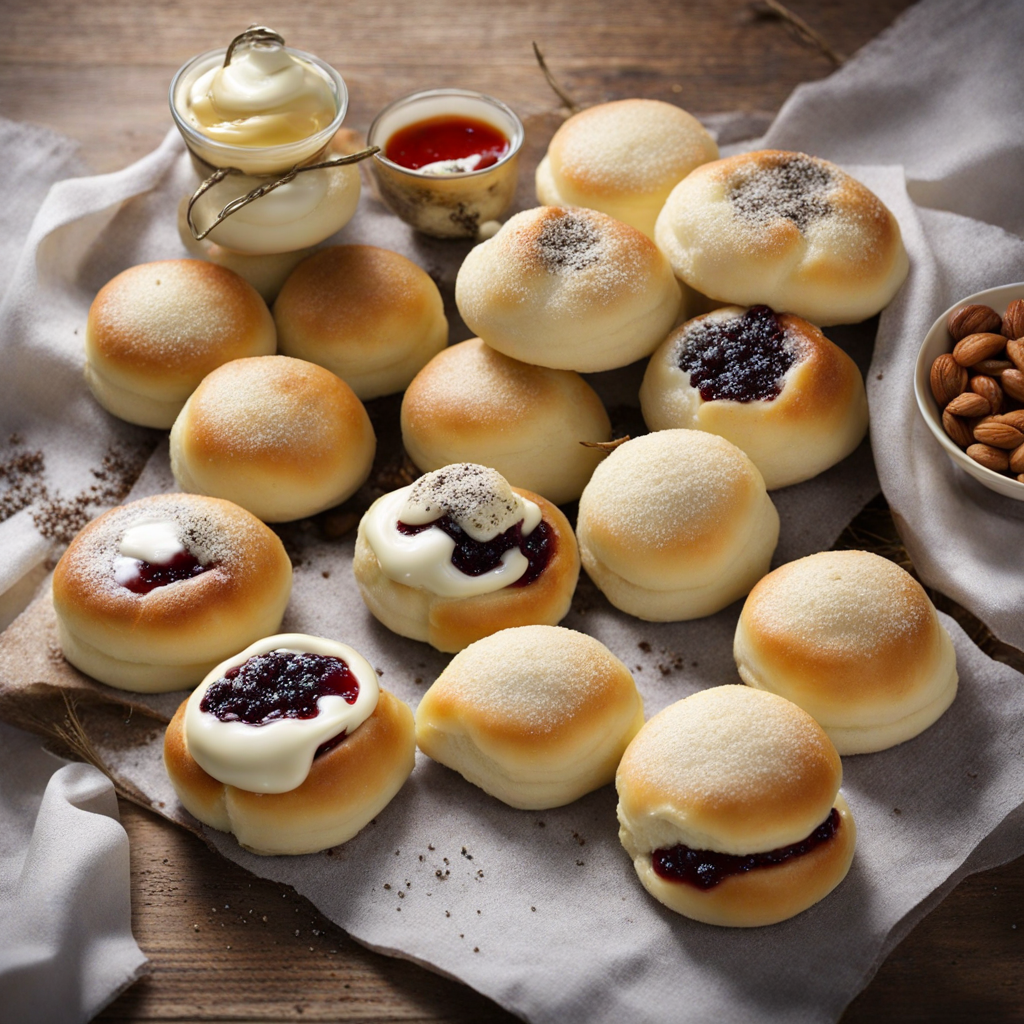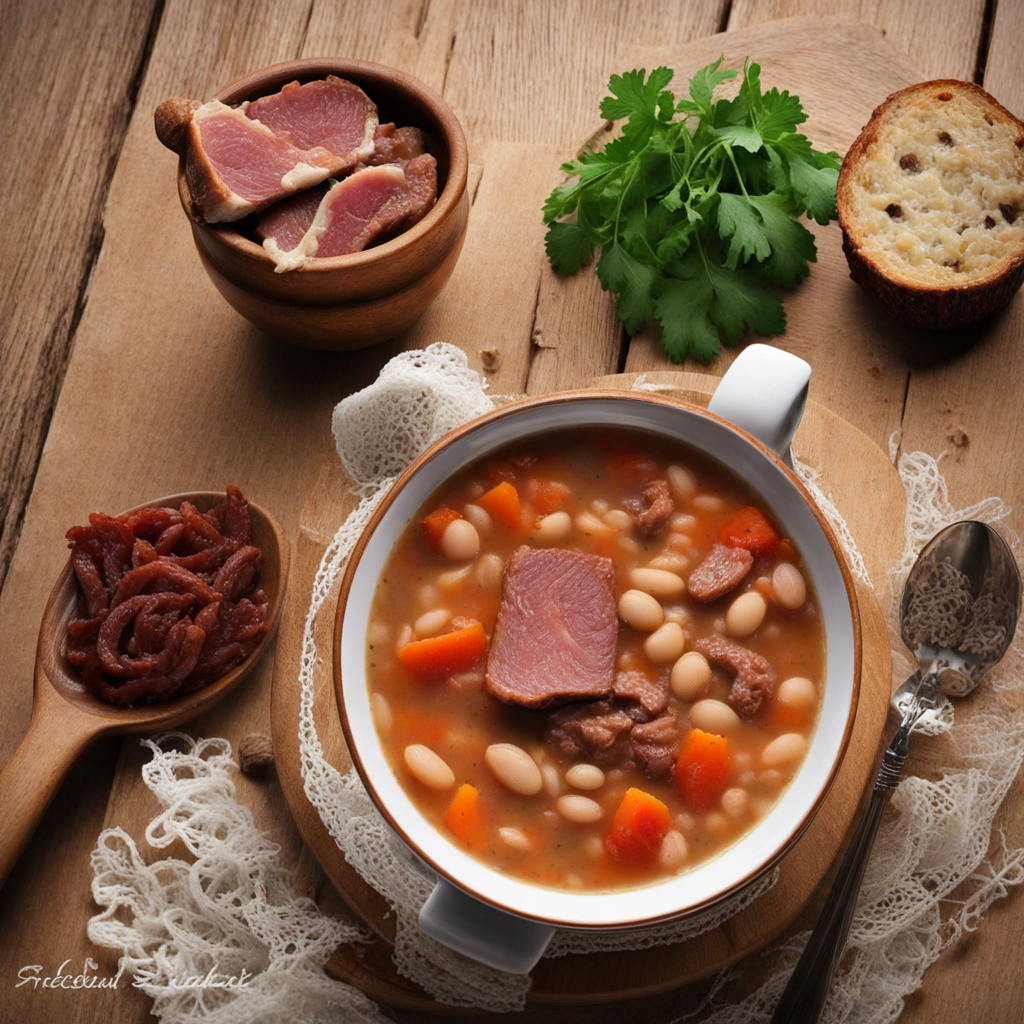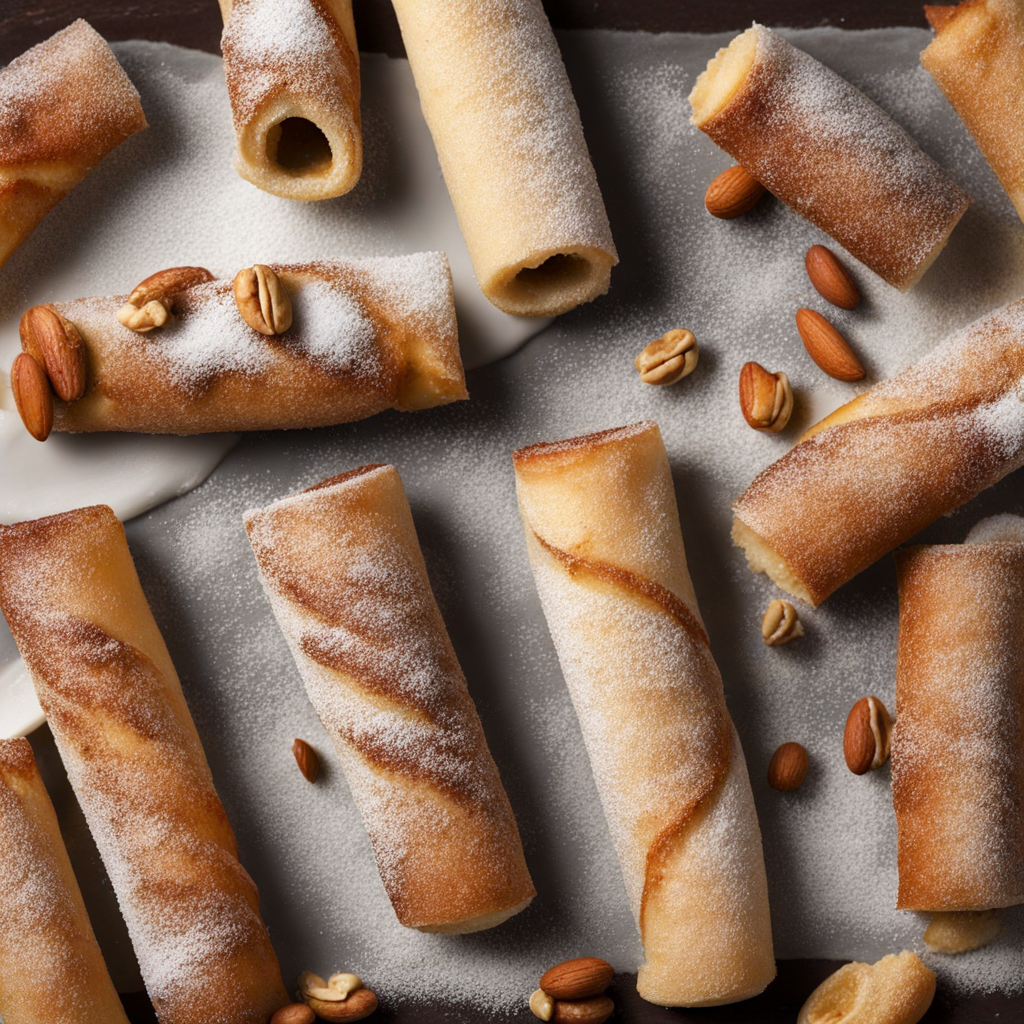Makówki
Makówki is a delightful Slovakian dish that showcases the rich flavors of poppy seeds in a unique and indulgent manner. This dessert is traditionally prepared for festive occasions, particularly during Christmas, and is known for its comforting, sweet profile. The base of Makówki is made from layers of sweet pastry, often resembling a soft bread or cake, which is interspersed with a luscious mixture of ground poppy seeds, honey, and sometimes nuts or dried fruits. The combination creates a delightful contrast between the tender dough and the nutty, aromatic filling, making each bite a celebration of textures and flavors. What sets Makówki apart is the careful layering of ingredients, which results in a visually stunning dessert that is as pleasing to the eye as it is to the palate. The poppy seed filling is not only rich in flavor but also carries a slight earthiness that complements the sweetness of the honey and the warmth of any added spices, such as cinnamon or vanilla. The use of milk or cream in some variations adds a creamy element that enhances the overall richness, creating a truly indulgent experience. Makówki is typically served chilled or at room temperature, allowing the flavors to meld beautifully. It can be accompanied by a dusting of powdered sugar or a drizzle of syrup for added sweetness. This dish is more than just a dessert; it is a cultural experience that embodies the warmth of Slovakian hospitality. Each bite of Makówki tells a story of tradition, celebration, and the joy of sharing beloved recipes with family and friends.
How It Became This Dish
Makówki: A Sweet Legacy of Slovakia #### Origins and Ingredients Makówki is a traditional Slovak dish that embodies the rich agricultural heritage and culinary traditions of the region. The name "Makówki" directly translates to "poppy seed rolls" in English, highlighting one of the dish's primary ingredients—poppy seeds. This food item is commonly associated with the Christmas season, although it can be enjoyed at any time of year. The origins of Makówki can be traced back to the Slavic culture, where poppy seeds have been cultivated for thousands of years. They were valued not only for their culinary uses but also for their nutritional benefits, as they are rich in oils, protein, and essential minerals. In Slovak folklore, poppy seeds symbolize prosperity and abundance, making them a fitting ingredient for festive occasions. #### Cultural Significance In Slovakia, food is more than sustenance; it is a vessel for cultural transmission, family bonding, and celebration. Makówki plays an integral role during Christmas Eve dinners, known as "Štedrá večera," where a spread of traditional dishes is served to honor the significance of the night. The preparation and sharing of Makówki is not merely about the food itself; it is also an act of togetherness, where families gather to prepare the rolls, share stories, and maintain the customs passed down through generations. The dish is generally made from a sweet yeast dough, which is rolled out and filled with a mixture of finely ground poppy seeds, sugar, milk, and often a hint of vanilla or lemon zest. The rolls are then baked until golden brown and can be served warm or at room temperature. The scent of baking Makówki can evoke nostalgia, reminding many Slovaks of their childhood and family gatherings during the festive season. #### Development Over Time As with many traditional dishes, Makówki has evolved over the centuries, influenced by historical events, trade, and cultural exchanges. In medieval Slovakia, the use of poppy seeds in cooking was quite common. The influence of the Austro-Hungarian Empire also introduced new ingredients and techniques that enriched the Slovak culinary palette. Additionally, the introduction of refined sugar and baking powder in the 19th century allowed for the development of sweeter and lighter doughs, contributing to the Makówki we know today. Throughout the 20th century, Makówki remained a staple of Slovak cuisine, particularly during the Communist era when communal celebrations and shared meals became crucial for fostering a sense of community and national identity. The dish became a symbol of resistance and resilience, as families would gather to prepare traditional foods that connected them to their heritage amidst political and social upheaval. #### Modern Adaptations In recent years, there has been a resurgence of interest in traditional Slovak foods, including Makówki, as younger generations seek to reconnect with their cultural roots. Contemporary chefs and home cooks alike have begun experimenting with the recipe, incorporating modern culinary techniques and ingredients. Variants may include adding chocolate chips, nuts, or dried fruits to the filling or using alternative flours for a gluten-free version. The rise of social media has also played a significant role in revitalizing Makówki's presence. Food bloggers and influencers showcase their baking processes, making the dish accessible to a broader audience. This has led to a new appreciation for Slovak culinary traditions, as people outside of Slovakia discover and celebrate Makówki. #### Conclusion Makówki is more than just a sweet pastry; it is a representation of Slovak culture, history, and familial bonds. It encapsulates the spirit of celebration and the importance of tradition in everyday life. As the dish continues to evolve and adapt to modern tastes while retaining its essence, it serves as a delicious reminder of Slovakia's rich culinary landscape and the stories woven into each roll. From its humble beginnings rooted in agricultural practices to its place at the festive table, Makówki stands as a testament to the enduring power of food to connect people, honor traditions, and celebrate life's milestones. Whether enjoyed during the holidays or as a treat throughout the year, this beloved dish holds a special place in the hearts of Slovaks and those who have come to appreciate its unique flavors and cultural significance.
You may like
Discover local flavors from Slovakia


